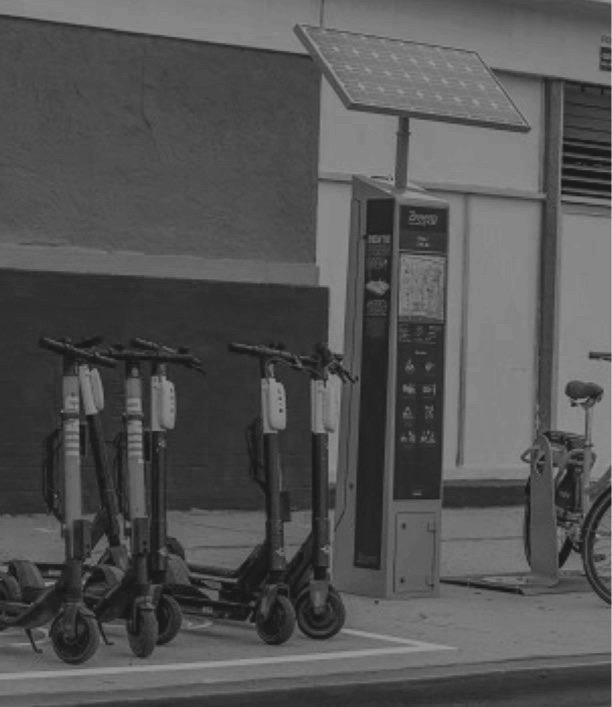SANTA MONICA—The Santa Monica City Council voted to extend Santa Monica’s Shared Mobility Pilot Program through May 2020 at their meeting on Tuesday, November 12. The extension period aims to refine the policies already in place for an improved second pilot program with intensified regulations that facilitate greater customer reliability, affordability, and more effective safety and public outcomes.
The Shared Mobility Pilot Program has generated 2,673,819 trips on e-scooters and e-bikes in the last year and a half which replaced car trips. City Council directed staff to return in early 2020 with a second pilot that advances the following goals:
- Improve safe riding with a focus on sidewalk safety and develop systems that manage user behavior when operating and parking devices.
- Offer and increase utilization of income-qualified reduced rate programs to ensure that shared mobility remains an accessible transportation option for all community members.
- Increase efforts to incentivize the use of designated parking zones and penalize users who park devices illegally.
- Ensures fees generated continue to support infrastructure projects that improve bike and scooter safety.
According to the November 2019 report of the Shared Mobility Program, there were 122 reported collisions that involved e-scooters and e-bikes from January 2017 to September 2019. Ten percent of those collisions resulted in severe injuries and 80 percent resulted in a minor visible injury or complaint of pain.
The most common complaint involved parking issues where 17 percent of devices were not being parked upright and 25 percent of devices did not provide sufficient clearance in the public right-of-way. City Code Enforcement officers issued 299 citations for 929 violations and impounded over 1,200 devices for blocking access to people with disabilities, being parked in the street, slow operator response time, and other violations.
Member of the city council expressed openness to decreasing the number of operators for the second pilot program. They discussed focusing on parking drop zones in the street, exploring viability of a re-envisioned Breeze Bike Share Program, and an improved policy model for the public to report issues to scooter companies.
“Scooters and e-bikes are undoubtedly popular and user data tells us people are riding them instead of hopping in a car,” said Mayor Gleam Davis, “These shared micro mobility devices have aided in advancing our mobility, sustainability, and wellbeing goals, but there’s still work to refine regulations, improve safe use, and incentivize equitable access for people of all incomes. Working with micro mobility companies in a cooperative manner will allow us to make further progress as the technology and the industry evolves.”
The city council will vote on the second pilot in early 2020 with implementation expected by May 2020.






